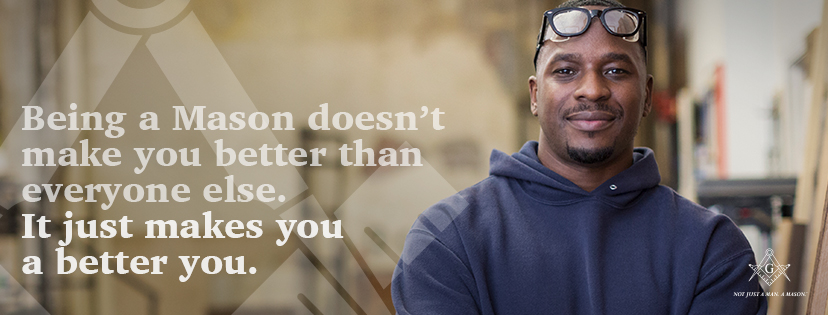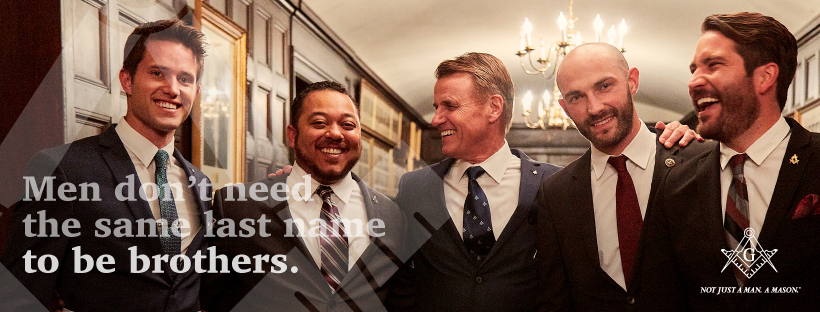
Being a Mason is about a father helping his son make better decisions; a business leader striving to bring morality to the workplace; a thoughtful man learning to work through tough issues in his life.Throughout a Mason’s life, fellowship and friendship is a key component, as well as community service. The typical Mason wants to continue to grow as a man and to benefit society.
What is the typical life of a Mason?
It’s a question we get a lot from men who are deciding if they’d like to join the craft. The real answer is: There is no “typical” life of a Mason. Masons come from all walks of life — from Corporate CEOs to city bus drivers, from commodities brokers to auto mechanics. What unifies Masons is not where we come from or what we do for a living, but rather what we aspire to be.
The essential qualities Masons share in their diverse lives are a belief in a Supreme Being and a desire to strive for:
- Fellowship with other Masons
- High moral standards
- Kindness in the home
- Courtesy in society
- Honesty in business
- Fairness in all dealings
Tradition: when you become a Mason, you become part of ancient tradition that spans centuries. From the original stonemasons that produced some of the most majestic architectural wonders of Europe to modern day Masons who participate in numerous charitable foundations, you’ll feel connected to a vital, growing and spiritually uplifting organization of moral men;
Self Improvement: learning portions of the Ritual and participating in the Degree stimulates the mind and, coupled with committee work and lodge management, presents the opportunity to develop leadership and organizational skills, build self-discipline through commitment, poise and self-confidence, and strengthen presentation and public speaking proficiencies;
Sense of Accomplishment: participating in lodge projects, be they charitable or social in nature, provides the opportunity to contribute, work with others and enjoy the success of effort well expended;
Fellowship – Belonging to a Like-minded Group: the modern work environment has reduced or eliminated social association with co-workers; joining with lodge members in a fraternal atmosphere can substitute for that former workplace fellowship lost;
A Break from the Workaday Routine: Masonry brings together in lodge men of diverse backgrounds, where the daily pressures of a career can be left outside the door and where fellowship is the common theme.

Brotherly Love encompasses the variety of relationships developed throughout one’s membership. It is a sense of belonging to a group of mutually-minded men that seek to welcome, support and guide one another.
Relief embodies charity for all mankind and the importance of helping others. During the opening and closing of each Masonic Lodge meeting, this message reinforces why Members choose to support charity: because they believe it’s the right thing to do.
Truth refers to honesty, fair play, knowledge of self and adherence to the cardinal virtues of Temperance, Fortitude, Prudence, and Justice. Freemasonry provides members with a philosophical understanding of life by reinforcing values through Lodge activities and the Masonic degrees.
Because of these principles, New York Freemasons support charitable programs to help their local communities thrive through partnerships between Lodges, members and like-minded groups. The Craft and its many Appendant Bodies support various philanthropies ranging from medical research and specialty hospitals to scholarships and many more. We understand that providing help and service is as much of a gift as receiving it.
Freemasons often lend support in one or more of the following ways:
- Volunteer time
- Seeking out those in need and determining a way to help
- Supporting youth and other community programs
- Hosting or supporting a community events or fundraisers
- Gifting charity through a will or trust
- Making donations or offering scholarships
